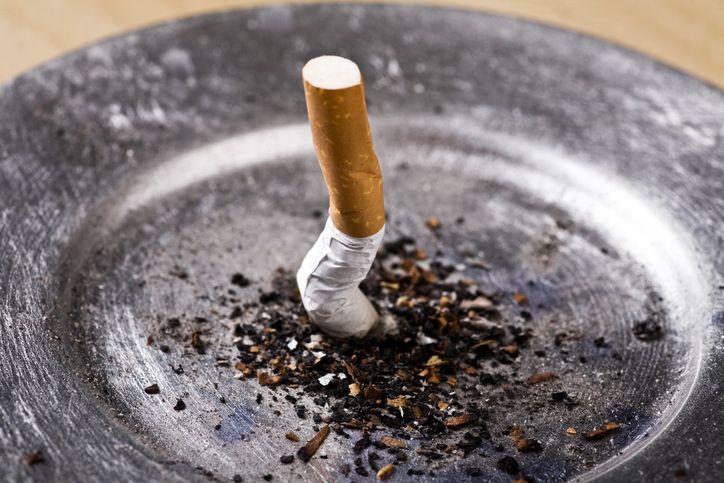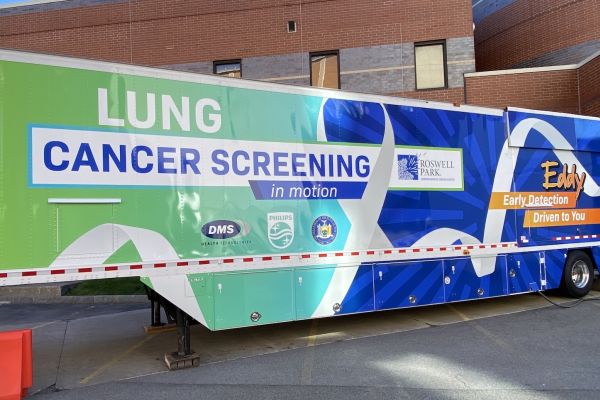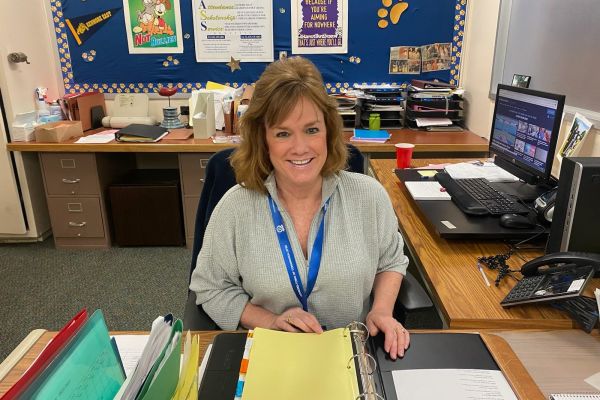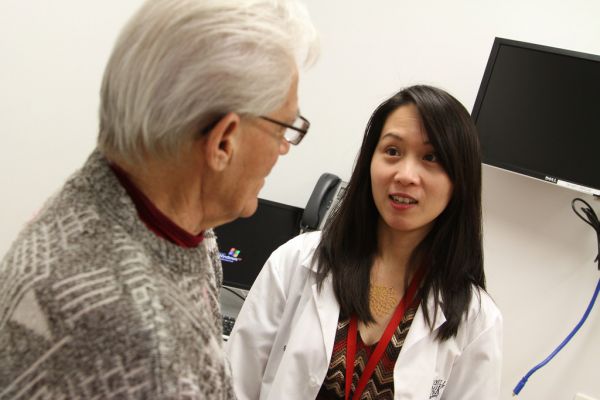If you’re a current or former smoker, have you ever wondered how much your smoking history really impacts your risk? Roswell Park Comprehensive Care Center’s Lung Cancer Screening Program utilizes a practical metric to help patients assess their smoking history and determine whether they should seek lung cancer screening known as the Pack/Year.
“To calculate the number of pack years you have smoked, multiply the number of packs you smoke per day by the number of years you have smoked. That total number is your pack years/number,” says Nikia Clark, Senior Outreach and Education Manager in the Office of Community Outreach and Prevention.
Patients will be recommended for lung cancer screening if they:
- Have a history of at least 20 pack/years of smoking
- Are aged 50 - 79
- Have actively smoked within the last 15 years
(Additional risk factors include a history of cancer and work history around environmental toxins).
Once that pack/year number is calculated, Roswell Park’s Lung Cancer Screening Program determines a patient’s next course of action. Using low-dose CT (LDCT) — imaging that's better and safer than x-ray — and bronchoscopy, Roswell Park’s Lung Cancer Screening Program monitors high-risk patients, detecting potentially cancerous nodules in their earliest and most treatable stage.
Not all nodules are cancer, in fact, many are benign. The only way to know for sure is to have a biopsy, or small piece of the nodule, removed so that our pathologists who focus on lung cancers can analyze it.
Clark says using the pack/year calculator as part of the Lung Cancer Screening Program is crucial because it saves lives.
“Lung cancer causes more deaths than breast, prostate and pancreatic cancer combined,” she says. “Only 6% percent of people eligible for lung cancer screening are getting tested. We need to increase screening rates in order to save lives!”
Her office helps to establish community outreach initiatives that focus on cancer education and awareness and promote cancer screening for breast, colorectal, cervical, prostate and lung cancers.
She adds, “We also need to educate communities that are most at risk and offer services to help lower their risk, such as smoking cessation aids. We know that those at the highest risk for cancer also suffer the most from the cancer burden. We need more resources and more accessibility to get to screening.”
One program that does just that is Roswell AIR (Awareness, Information and Resources). This lung cancer education program:
- Defines lung cancer
- Informs participants on ways to assess and to lower their risk of lung cancer
- Discusses the importance of lung cancer screening for those who are eligible
“Roswell AIR has been implemented in high-risk communities where data has shown lung cancer and smoking rates to be more prevalent,” says Clark. “This includes areas on the east side of Buffalo, Niagara Falls, rural Western New York and in our Hispanic/Latinx communities.”
In addition, Roswell Park recently announced the rollout of Eddy — Early Detection Driven to You. A mobile lung cancer screening truck outfitted with state-of-the-art screening technology, Eddy will bring life-saving lung cancer screening to the New Yorkers who need it most, especially medically underserved and racially diverse populations. Patients can get a low-dose CT scan in just 30 seconds.
Meet Eddy!
Learn more out more about Roswell Park's new mobile lung cancer screening program and sign up to find out when Eddy is in your area!
Read More



